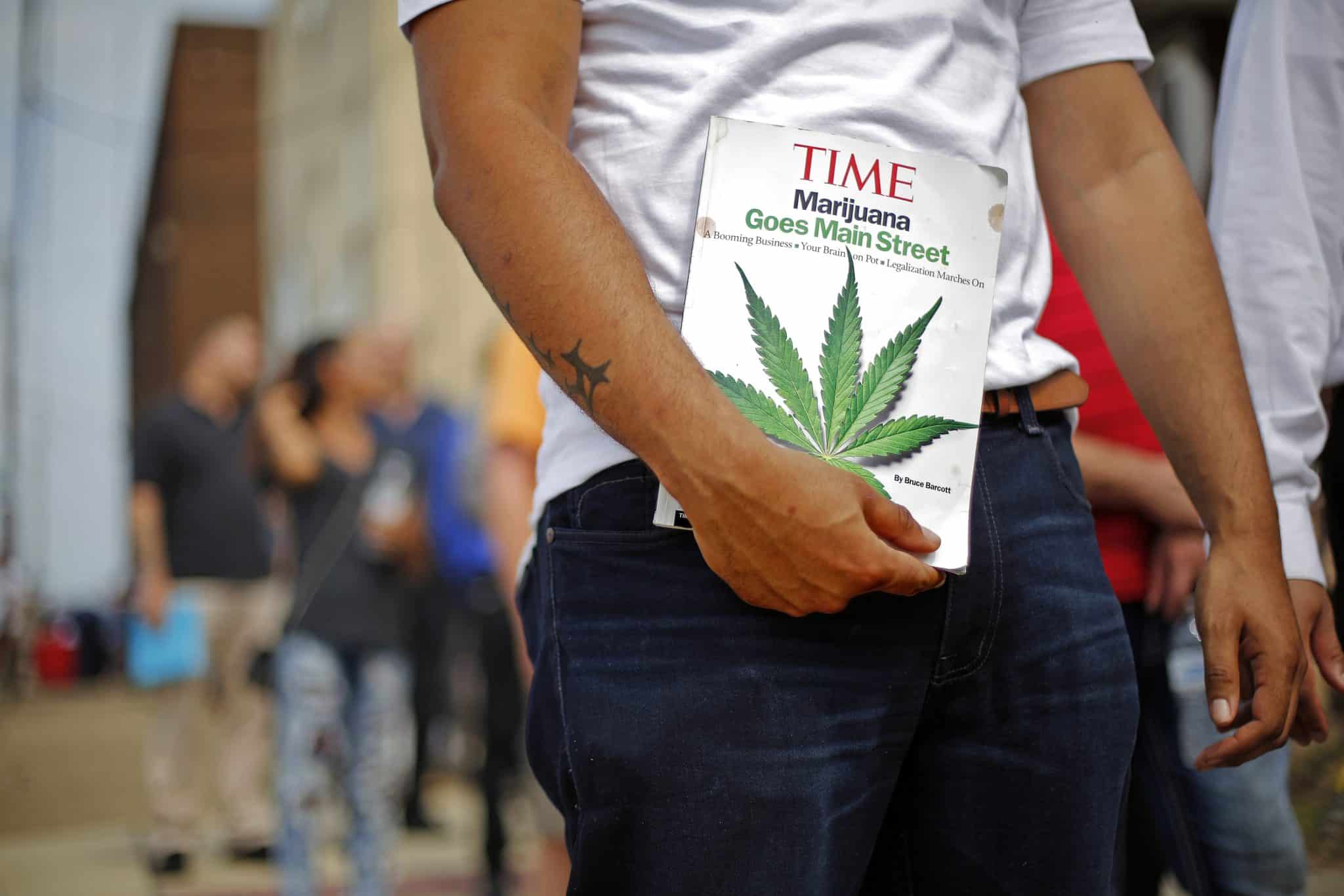Growing up in Bucks County, I learned the values that define our community: personal responsibility, fiscal discipline, and protecting our families. These same principles guided me through my bioengineering studies at Penn State and later shaped my work as a cannabis entrepreneur. Today, they compel me to speak out on an issue Republicans have an opportunity to seize: the need to legalize adult-use cannabis in Pennsylvania.
After graduating from Penn State in 2005, I earned a master’s degree in applied mathematics from the University of Colorado. In 2009, I founded Terrapin Care Station in Boulder. What started as entrepreneurial curiosity became a mission when I saw how cannabis regulation could transform a dangerous black market product into a safe, tested, and accountable alternative.
As CEO of Terrapin, I’ve seen firsthand how prohibition has failed and how responsible regulation can work. When the opportunity arose to return home to Pennsylvania in 2017, I brought our operations to Clinton County. Today, our 180,000-square-foot facility in Avis employs 140 Pennsylvanians—more than half of them women and veterans. We’ve proven that cannabis businesses can be responsible employers and community partners.
It’s time for Pennsylvania Republicans to recognize that legalization isn’t a departure from conservative values—it’s a return to them. A tightly regulated, taxed, and controlled cannabis market promotes public safety, supports families, and reflects the personal liberties our party has always championed.
The Case for Legalization
The current system is broken. Cannabis and intoxicating hemp products are easily accessible, including to children. During a recent Harrisburg hearing, lawmakers received jarring testimony on this matter. Prohibition hasn’t eliminated cannabis—it’s merely surrendered control to an unregulated market that doesn’t test for safety, check IDs, or pay taxes. That’s not responsible governance—it’s a policy failure.
In Pennsylvania’s medical cannabis program, I’ve seen how proper oversight works: every product is tested multiple times, staff are trained, and patients receive pharmacist consultations. Pennsylvania’s medical program has proven that we can regulate cannabis safely and effectively. It’s time to extend those standards to adult use.
Meanwhile, five of our six neighboring states have legalized cannabis. They’re generating millions in tax revenue and implementing strong consumer protections. Pennsylvania, by contrast, is forfeiting jobs, tax dollars, and public health benefits to states that have moved forward.
The Intoxicating Hemp Loophole
Nowhere is our policy failure more evident than in the rise of intoxicating hemp. Loopholes in federal law have allowed the sale of unregulated, psychoactive hemp-derived products in gas stations, convenience stores, and online—often with no age verification and cartoon-style packaging aimed at children.
These products contain the same active compounds as traditional cannabis but are not subject to testing, potency labeling, or child-resistant packaging. This unregulated market puts consumers and kids at risk. The solution isn’t more federal bureaucracy—it’s clear state-level regulation that brings all cannabis products under one enforceable framework.
Consumer Safety Comes First
Pennsylvania’s medical cannabis system is the gold standard. Patients know exactly what they’re getting: lab-tested, clearly labeled, and safely produced products. Compare that to intoxicating hemp, where mislabeling, contaminants, and synthetic additives are common.
Which system better protects our families? Which one better reflects the role of government in ensuring public safety? The answer is clear: regulation works—prohibition does not.
Economic and Fiscal Responsibility
With a projected $4.5 billion budget shortfall, Pennsylvania needs sustainable, non-tax revenue streams. Cannabis legalization offers exactly that. In Clinton County, Terrapin has created 140 full-time jobs, invested more than $20 million into expansion efforts, and partnered with local contractors and service providers. Our security company, VetForce, employs 80% veterans and now operates across several states. Counties throughout the Commonwealth could experience similar economic growth with the right regulatory framework in place.
Legal cannabis would replace illegal markets with taxpaying businesses, support small enterprises, and create local jobs—all while keeping products safer and better regulated.
A Public Health Imperative
Legalization also makes sense from a public health perspective. States with legal cannabis have reported reductions in opioid prescriptions, fewer overdose deaths, and improved allocation of law enforcement resources. Legal access undercuts criminal networks and provides safer options for adult consumers.
As one of Pennsylvania’s original 12 licensed grower-processors, I’ve seen how regulated cannabis helps patients—from children with epilepsy to veterans with PTSD to seniors managing chronic pain. These products are produced under strict medical supervision and pharmaceutical-grade standards. Why shouldn’t all Pennsylvanians benefit from the same safeguards?
A Conservative Opportunity
Republicans have an opportunity to lead—not by embracing a trend, but by affirming core principles: fiscal responsibility, personal freedom, and public safety. Supporting legalization means ending a failed policy, taking control of an unregulated market, and creating economic opportunity without raising taxes.
It also means eliminating the intoxicating hemp loophole and holding all cannabis products to the same high safety standards. That’s how we protect children, ensure consumer safety, and restore order to a chaotic system.
When my father passed away, he left me just enough capital to start Terrapin in Colorado. Bringing that experience home to Pennsylvania has been the most rewarding part of my career. We’ve donated to food banks, funded veterans’ parks, and partnered with groups like Horses of Hope. Cannabis businesses can be a force for good when properly regulated.
The choice is clear. And as of today, there are three legalization bills in front of lawmakers, two of which are bipartisan. I commend two Republicans who have notably taken leadership on this issue – Sen. Dan Lauglin (representing Erie) and Rep. Abby Major (representing Armstrong & Westmoreland). Laughlin is the primary bill sponsor to SB120, proposing legalization, and Major is a co-sponsor to HB20, which also creates an adult-use, regulated framework for our Commonwealth. Now is the time for all Republicans to join Laughlin and Major and lead on this winning issue — it’s the right thing to do.






